The time has always been right to address discrimination in housing. But since the release of the 2018 Brookings report, The devaluation of assets in Black neighborhoods—which showed homes in Black-majority neighborhoods are priced on average $48,000 less than comparable homes in white-majority neighborhoods—research, social activism, and legislative action have spurred a reckoning. The real estate industry has had to reckon with common practices that extract wealth from families simply for living in Black neighborhoods.
Lower home prices in Black neighborhoods reflect how much we value their residents. The problem of housing devaluation requires input from a wide range of actors across multiple sectors, including the people closest to the problem; but they have less resources and power to engage with dominant people who influence policy. Consequently, we must financially incentivize and empower local leaders, firms, and nonprofits to work alongside well-resourced institutions to find a new generation of solutions.
To empower local stakeholders and combat housing devaluation, the Brookings Institution is joining forces with the social entrepreneurship organization Ashoka to provide opportunities and financial incentives of up to $100,000 for people who are proximate to the problem so that additional seats can be pulled up to the decisionmaking table. This collaborative challenge, Valuing Homes in Black Communities, begins this week.
What do we mean by devaluation?
After carefully attending to social conditions like education, crime and walkability, our research found that homes in Black-majority neighborhoods across the country are priced, on average, approximately 23% or $48,000 less than similar homes in similar social conditions in mostly white areas, where the share of the Black population are less than a percent. In some specific metropolitan areas, the price difference is even more pronounced. For instance, in the Lynchburg, Va. metropolitan area, we see an -81% difference between average home prices in Black-majority and white neighborhoods. In the Rochester, N.Y. metro area, there is a -65% difference. In the metro area with the largest Black population, Detroit, Mich., there is a -37% disparity.
For the millions of residents who live in Black-majority neighborhoods, this devaluation means less money for critical municipal services like public schools and policing. Less equity in a home translates into less cash for ever-increasing college tuition, thus leading to more student loan debt. And lower value on our homes also means less capital to start a business. Our research finds that the $156 billion in lost revenue could have started 4.4 million businesses, based on the average amount of capital Black people use to start their firms.
Since the release of this report, there have been congressional hearings, additional studies and news reports corroborating our conclusion that racial bias significantly influences home values. The Biden Administration has acknowledged Brookings’s devaluation research in various memoranda, and the U.S. Department of Housing and Urban Development recently announced an interagency task force on appraisals. This came right before the government-sponsored enterprise Freddie Mac released a study showing systemic racial bias among appraisers. The acknowledgement of this issue by the highest levels of government is appreciated and encouraging. But we believe that solutions must come from people who experience and combat discrimination on the daily basis.
Correcting home values must go beyond appraisal regulation
After our devaluation report was released, people’s attention immediately shifted to the appraisal industry. Appraisers are the professionals who explicitly assess value. So, it is understandable why the industry garnered scrutiny. In 2019, one of this blog’s authors testified in Congress along with representatives from the Appraisal Institute and the Appraisal Foundation, two organizations that help certify and regulate appraisal professionals. When Rep. Al Green of Texas asked the panel to raise our hand if we believe “discrimination plays a role in the devaluation of property in neighborhoods that are predominated with minorities,” I was the only one who raised a hand.
If you have a structural innovation that fully values homes in Black communities, please join the Ashoka-Brookings collaborative challenge to win up to $100,000 to help solve for housing devaluation.
Since then, numerous news stories have surfaced that show the intrinsic value of whiteness expressed in biased appraisals. In 2020, the New York Times reported on the Jacksonville, Fla. couple, Abena (who is Black) and Alex (who is white) Horton, who had their home appraised. They believed that the appraisal was too low. So, they got a second appraisal. However, during this second round, the couple staged the appraisal appointment so that Alex was present instead of Abena, while the couple had purposefully removed all signs of Abena and their biracial son. The second appraisal yielded a 40% higher value than the first appraisal.
In 2020 in Indianapolis, amid the pandemic, Carlette Duffy sensed that appraisals on her home in the Black-majority Flanner House Homes neighborhood, west of downtown Indianapolis, had come in too low. After removing pictures, books and clothing—or scrubbing the Blackness from her home—and getting a white stand-in, her appraisal came in $134,000 higher. Numerous other stories have been published in places throughout the nation showing racial bias in appraisals.
While appraisals are certainly involved in lower home values, they are not the only actors influencing price. Lenders, real estate agent behavior, elected officials and public policies, biased labor markets as well other predatory housing practices also contribute to the problem of devaluation. Consequently, we need a suite of innovations based on people who are intimate with the issue.
The Ashoka-Brookings Challenge
We believe that no one understands the issue of housing devaluation better than the advocacy groups, firms and institutions who have been working to remove the everyday policies and practices that extract wealth and opportunity from residents, throttling their growth. We also believe that devaluation reflects discrimination throughout housing markets. Consequently, we are interested in innovations that address low appraisals, mortgage rates and insurance costs.
In addition, the country needs structural innovations that enable development without displacement; make it possible for people of all incomes to live and work in the same place; and push back against the increasing prevalence of financial landlords and the widespread use of eviction proceedings that accompany it.
If you have a structural innovation that fully values homes in Black communities and/or are connected to a community of innovators, please join the Ashoka-Brookings collaborative challenge to solve for housing devaluation. Participate in the opportunity to win funding of up to $100,000 to help drive change forward.
Participants can submit applications from now until January 13th on the Valuing Homes in Black Communities competition website. We are looking for applications from innovators who are advancing policy-based and market-based change on the local, regional and/or national scale. Participants will have a chance to win funding of up to $100,000. Participants who submit their application by December 2nd may also qualify for additional funding of up to $15,000 along with guaranteed advancement to the semifinalist round.
Past and present exclusionary policies and practices like redlining, racial housing covenants, single family zoning ordinances, and neighborhood level price-comparison approaches to valuation impact today’s home values. Correcting housing markets will require initiatives that encourage inclusion rather than exclusion and seek restoration of the value extracted by racism. The Ashoka-Brookings Collaborative Innovation Challenge on devaluation does just that.
The Brookings Institution is committed to quality, independence, and impact.
We are supported by a diverse array of funders. In line with our values and policies, each Brookings publication represents the sole views of its author(s).
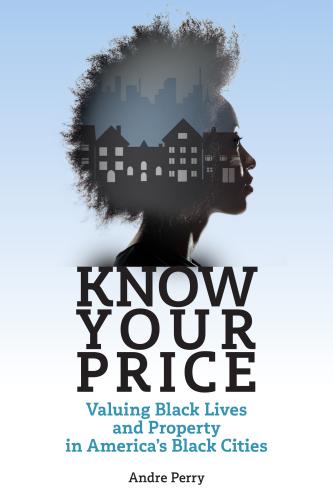
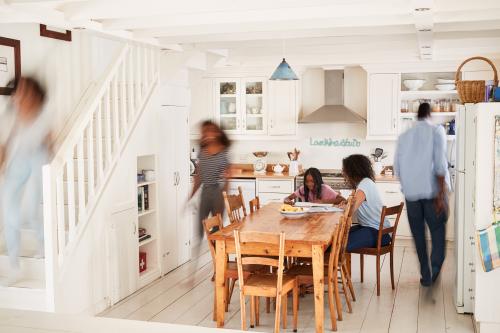

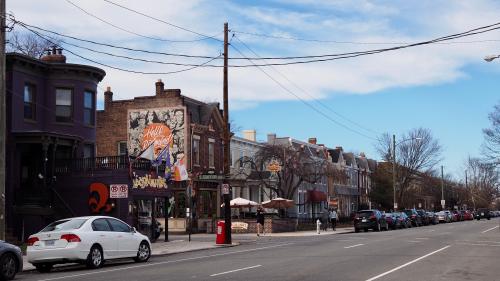


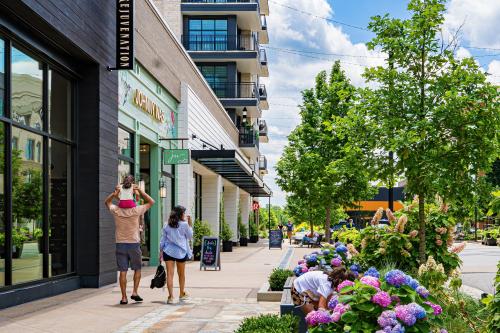

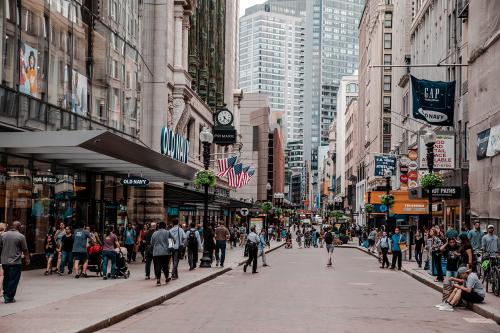
Commentary
Introducing the Brookings and Ashoka Collaborative Innovation Challenge: Valuing Homes in Black Communities
October 28, 2021